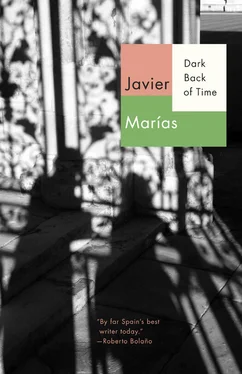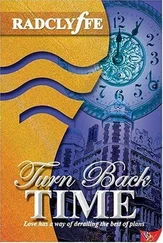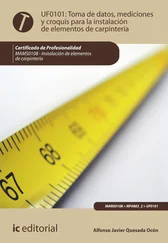Then the door opened to let the usher in: time’s up. The usher stopped short at this unexpected tableau: the fictitious navigator seemed to be whispering a secret to the swaggering Englishman, or else making a confession, a thing unheard of, the trumped-up admiral never confided in anyone. The usher gracefully cleared his throat (certain occupations require this skill) and announced to Su Excelencia that his presence was awaited at that afternoon’s bullfight, which was to feature yearling bulls. De Wet stood up with a start and immediately retreated to his original position on the other side of the table. Then the tauromachy-loving dictator made an unmistakable gesture of farewell with his hand, a gesture that was mild and almost affable, and said, “ Adiós . Good luck with your project.”
De Wet understood. There was no point in making any further attempt. The gesture had been dubiously affable and the words, though they wished him well, cutting: in a single instant this man was capable of rotting blood and making the somberest shadow flow, Blaw for Blaw, or, for Franco, golpe por golpe . Or no: for every blow he got he gave back far too many, which is typical of the insecure. The former pilot stood at attention and expressed his gratitude for the honor done him, the time spent, the ear lent. The dictator did not answer but looked at the usher and said, “Garralde, show Señor de Bet out and then come back here.”
De Wet turned on his heel and made his way towards the open door, but before he had gone through it the pinched voice stopped him.
“You haven’t told me which battles your grandfather won in Africa.”
The mercenary faced him and straightened his shoulders once more.
“With your permission, señor: Vechtgeneraal Christiaan Rudolf de Wet. He was at Majuba, Ladysmith, Waterval, Paardeberg, Poplar Grove, Sanna’s Post, Bloemfontein, Magersfontein, Roodewal, Koedoesberg, Mafeking, Reddersburg, Tweefontein, Mushroom and River Vet among others, he didn’t win them all. He was particularly adept at guerilla warfare, and some of that must have passed down to me.”
That last observation was the final attempt he had already decided against. As expected, it was futile. The chimerical commodore made no answer, but only murmured coldly, or his tone may have been disdainful, or surly, or perhaps suspicious, “Those names are not known to me.”
“La Guerra Boer, señor,” De Wet clarified, in translated English. “It lasted three years.” He was about to add, “Like yours, like ours, señor ,” but forbore.
“Ah, La Guerra de los Boers ,” said Franco slowly as he began writing something down, also slowly, on the note card where a while before he had written “Effeminate.” What he now noted was: “Dandified adventurer. Degeneration of a family.” And he then added, speaking out loud: “Your grandfather, then, was a member of the expeditionary forces.”
“No señor , with your permission, señor . I’m British, but my grandfather was Boer. He became commander-in-chief of the Boer army against the English. Later things changed and the family emigrated.”
It must have struck Franco Bahamonde as peculiarly contemptible that the commander-in-chief’s grandson had the nationality of the enemy, and he lowered his gaze to go on writing, this time noting in more lively fashion, “With that awful ponytail the only place for you is the bullring.” He then raised his eyes and covered what he had written with his hand, though there was no chance that De Wet could make it out from the doorway, where he was waiting, turning his hat in his hands, immaculately well dressed. The dictator repeated the gesture of farewell, like someone who is giving his consent, but more distracted, and De Wet heard him mutter: “ La Guerra de los Boers , and what else. I followed that war in the newspapers when I was a boy. The names would have rung a bell. You don’t fool me, ponytail.”
De Wet was led out to the street by Garralde, the usher, who had a ruddy face and dense, provincial hair, and as he walked through hallways and down stairs, covertly observed, he thought that at least he had learned a new Spanish word during that audience which had turned out to be such a resounding failure. “ Punzar , to pierce” he hadn’t known it before and now it stayed on his tongue (“ Punzar, punzar ,” he repeated to himself), and what was more he had understood it, from the context. And perhaps it was due to the usher, who was quite a gossip, that De Wet managed not to be arrested every night by the police for his adventuresome, dandified look in the Madrid of 1951, not in the Café Gijón with his disciple Edkins or in El Molino Rojo, Pasapoga, El Biombo Chino or in Conga, El Avión, J’Hay, Tarzán (formerly Satán) or Chicote, and not in House of Ming or even Las Palmeras, if all of them existed already or still, or even in better spots than these and in the best company of bullfighters and actresses: he must have been out all night every night, there’s no dictatorship that can put a stop to Madrid’s nocturnal ways. Perhaps Garralde, the usher — who may himself have been a little effeminate, though he served the asexual Franco (who would never have suspected it in his life) — couldn’t help telling his boyfriend, a policeman, about the incredible sight of the dictator confiding in that tall, blond, kneeling man, with the ponytail, earring and eyepatch, speaking into his ear, so close he could have licked the earlobe. A key figure, that foreigner, what with all the whispered secrets, best to be on good terms and not give him any trouble; on the contrary, best to smooth the way for his escapades during his brief or lengthy stay in Madrid. Or maybe Garralde wasn’t gay and had no lover, only a wife who badgered him, but he might have been receiving money from some favored minister who often came to visit, Girón or Solís or Camilo Alonso Vega, Don Camulo they called him (if any of them were around during that period, I no longer remember, nor am I thinking of going and looking it up), so that he would let his tongue run away with him in gratitude; or the bribe may have come from the only son-in-law of the megalomaniac harpooner (hardly anyone remembers this now, but they used to set moribund sperm whales free within firing range to make him believe he was bagging them like some tourist Ahab, poor Melville again), who was reputed to do his utmost to pry into and spy on everything, the better to ingratiate himself with his father-in-law, and there were also rumors that the son-in-law had no objection at all to frequenting the most revelrous and dubious milieux (full of adventurers and even dandies, including Riscal and El Copacabana), despite the strict asexual who kept him under surveillance. So perhaps, in the end, it was the earring itself, rather than any influence, that served as a safe-conduct here in Spain for the mercenary named Hugh Oloff de Wet, or that may only have been one of his names.
Even though I didn’t leap for the telephone to call the untidy Mr. Pombo or race off immediately to Barajas airport to jump on the next flight to London, and failed, as well, to take the precaution of acquiring a device with which to record Edkins’ words when I had him in front of me, I wasn’t entirely inactive: I did put several British antiquarian or second-hand book dealers (Bertram Rota and Bernard Kaye, the Stones of Titles in Oxford, Ben Bass, who has since disappeared) on the alert so they would keep me in mind if they ever ran across a copy of either of the two rare and inaccessible books De Wet had written.
And in fitting recompense for the many bookish errands Don Juan Benet had sent me on over the years (all of them a mite tricky, as if he were forever putting me to the test), I took the liberty of asking him to hunt down references to the pirate-pilot in his magnificent library on the Spanish Civil War, which was one of his specialties. After a week, no doubt piqued by curiosity and the bibliographic challenge (I had put it to him in the most woundingly effective terms, “So, Don Juan, you who spend your life boasting about your great knowledge of the war: let’s see what you can show us”), Benet sent me from his country house in Zarzalejo, where he kept the literature on the war he was so proud of, the following handwritten report, under the mocking title, “Note for Mr. Javier Marías, B.A.”:
Читать дальше












